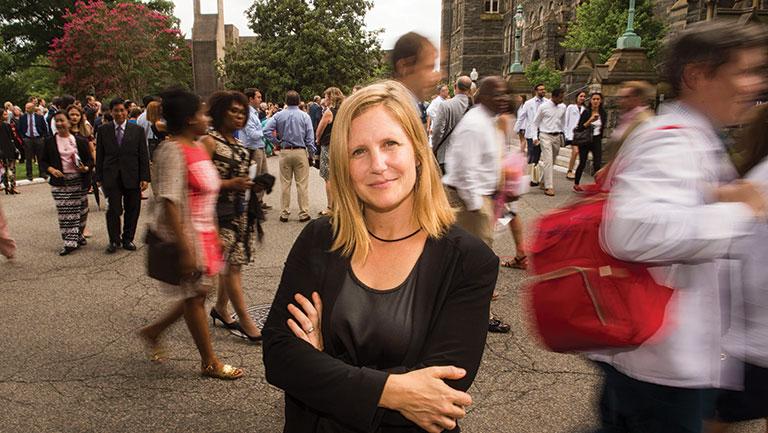Introducing a New Specialty Journal: SSM–Mental Health
Emily Mendenhall, Brandon Kohrt, Alexander TsaiWhen Louise Glenn at Elsevier reached out to us about developing the new specialty journal from Social Science and Medicine: SSM—Mental Health (SSMMH), we wanted to do something novel, inclusive, and transdisciplinary. We thought through how to organize, share tasks, and work together. We have all known each other and worked together for years. Emily and Brandon met in 2004 as graduate students at Emory University, working together on various projects, including the book series Global Health Narratives, and the edited volume Global Mental Health. Emily, Alex, and Brandon have collaborated on various projects since 2016.
We know each other well from varied paths, and we all bring different strengths. Brandon is a psychiatrist with a PhD in anthropology. Alex is a psychiatrist with a background in econometrics, causal inference, and health services research. Emily is an anthropologist with a degree in global public health. We have collectively worked in South Asia, throughout Sub-Saharan Africa, and the United States. Our diverse experiences and expertise will play a critical role in shaping the new journal to bring together various new ways of thinking, evaluating, caring for, and communicating about stress, distress, illness, healing, and well-being.
SSMMH publishes scientific advances related to mental, neurological, and substance use disorders. But we also hope to focus on studies deconstructing and theorizing psychosocial wellbeing and resilience in various contexts. In doing so, we plan to introduce a format that is new to SSM: the Series. These may include a short introductory article and two or three comparative or companion articles. We hope that Series articles will provide authors with an opportunity to think about two or three contexts or problems that require some comparative or cross-cultural thought.
We encourage submissions from multiple fields and multidisciplinary teams. We work with people across disciplines, languages, and backgrounds. We expect diverse collections of authors where different types of contributions to publications are valued and credited. We encourage single-authored work, too, such as ethnographic or theoretical pieces. We find projects that bring theoretical and methodological rigor together with practical implications to be the most attractive. In doing so, we hope to push boundaries in how people think about, interpret, name, elevate, and care for people with mental illness.
We have three offices: Medical Anthropology (led by EiC Emily Mendenhall), Implementation Science (led by EiC Brandon Kohrt), and Psychiatric Epidemiology and Population Mental Health Science (led by EiC Alexander Tsai). Please write to the appropriate Editor-in-Chief for inquiries. These offices are named to be inclusive—but please reach out to the Editors-in-Chief if you are not sure where to place a piece. For example, social scientists broadly working on qualitative work may submit to Emily, while quantitative work may go to Alex. Any type of experiment or trial would go to Brandon. We especially encourage those interested in writing a Series to reach out first to the appropriate Editor-in-Chief.
We list on our website, and include here, the types of studies that are within the scope of SSMMH, including, but not limited to:
- Interdisciplinary methods and theory will be prioritized, pushing boundaries within and between thinking about mental health, healing, illness, and disease;
- Research on social determinants of mental health and disparities in mental health ranging from conceptual frameworks to methods and implementation;
- Mixed-methods research that brings together multiple ways of understanding and evaluating mental health, including emic definitions, clinical classification, diagnosis, and assessment;
- Methodological notes, e.g. instrument and intervention adaptation and development;
- Well-designed replication studies conducted in novel settings, cultural context, or populations;
- Formative development of novel mental health interventions, adaptation of interventions, and implementation science studies of existing interventions;
- Psychiatric epidemiology within novel settings;
- Research and theorizing on, and careful philosophical or historical analyses of, specific clinical symptoms, syndromes, and classification systems;
- Research on precursors and risk factors for mental illness or protective factors and resources that promote eudaimonia via modes of flourishing, resilience, and well-being.
We look forward to your submissions and to thinking innovatively about the field to push it forward through transdisciplinary collaborative thinking.








All comments will be reviewed and posted if substantive and of general interest to IAPHS readers.